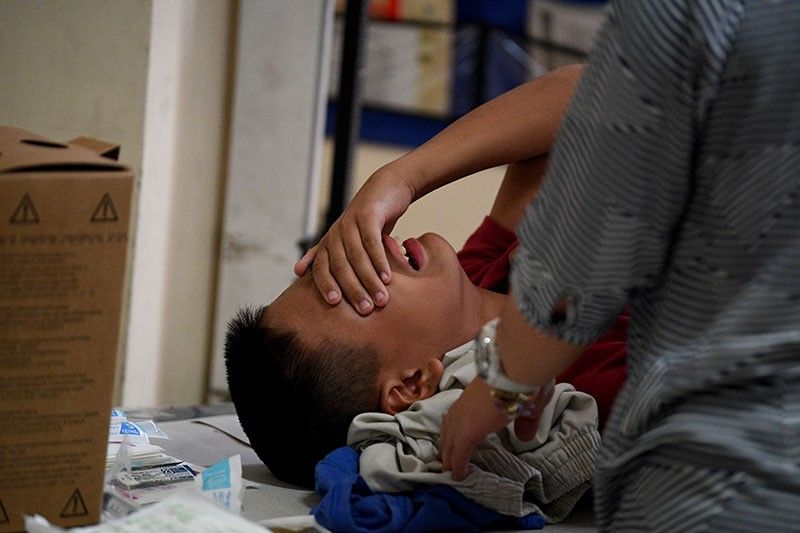Doctor shares 3 reasons why hospital is best place for circumcision or 'tuli'

MANILA, Philippines — Remember how young boys at the age of puberty are subject to a crude method of circumcision in the province as a rite of passage from childhood into manhood?
Conducted for free in barangays during summer, the circumcision, or “tuli”in Filipino, sees the removal of the foreskin of the penis performed without anesthesia by a “manunuli” or elder in the community who does not have formal training in medicine but is considered as an expert in the task.
Young boys who are of the age of puberty take their turns in the traditional circumcision, with each boy chewing guava leaves, which are noted for their antibacterial and wound-healing properties, while the “manunuli” uses a sharp knife to slice the upper skin of his young patient’s penis, exposing the glans. The chewed guava leaves are then applied onto the fresh cut that is wrapped in a bandage, and the boy is sent off, with instructions to wash the wound in the nearby river.
Considered as a rite of passage into manhood for boys aged between eight and 12, this traditional community circumcision comes with potential health risks, said Dennis M. Galimpin, MD, of Makati Medical Center (MakatiMed). This prompts him to suggest the operating room (OR) of a hospital as the best place to get circumcised — and there are three good reasons why.
1. It’s a sterile environment
Circumcisions performed outside of a medical setting may not adhere to the same standards of hygiene, pain management, technique, and post-operative care as those performed by qualified medical professionals in a sterile environment.
“From sterilized surgical instruments to oxygen on standby, a hospital operating room has everything needed and more, even for a routine and safe procedure,” shared Dr. Galimpin. “Should any complications arise, like excess bleeding, they can be addressed immediately.”
2. Medical experts are present
Board-certified pediatricians and general surgeons are in the roster of MakatiMed’s specialists.
“They have the knowledge, skills, and experience to perform the procedure using precise techniques that minimize complications like infections and improper healing,” noted Dr. Galimpin. “They can recommend what’s best for the age of your son and overall health condition, answer your questions regarding the procedure and its aftercare, and make sure your boy’s okay before he’s allowed to go home.”
3. It offers much-needed privacy
Community circumcisions are conducted en masse. Other "patients" and their companions see him. He will also be within earshot of the screams of fellow patients, and they will hear his own screams as well. While some are unaffected by this kind of environment, others may find the experience overwhelming, especially if they’re about to enter puberty.
“If your son isn’t used to this kind of scenario, he will definitely feel uncomfortable,” said Dr. Galimpin. “Having him circumcised in a hospital operating room ensures that his procedure will be done with utmost privacy and professionalism, reducing his discomfort and anxiety.”
It is recommended that parents discuss the procedure with their son first, instead of simply deciding on his behalf. While community circumcisions may be a cultural tradition for some Filipino families, it is crucial to prioritize the child’s well-being and personal preferences.
“Since it’s his body, ask your son to decide how he wants to go about it,” suggested Dr. Galimpin. “Speaking up, taking charge of his health, and understanding the pros and cons of his decision are the true signs of manhood.”
RELATED: Senior gets P20,000 as 'libreng tuli' prize; 2 others get P10,000





















